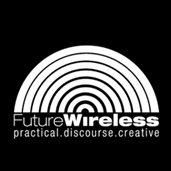
.programme
.background
.contributors
.visions
.links / resources
 |
.programme |
| .visions / frances mckee | |
| Frances McKee (bio)
|
I see two area of potential worry in a wireless future. The first is the accelerated loss of privacy. Iris printing in airports is already with us and soon a formidable quantity of data will be attached to these prints. The pervasiveness of wireless technology simply allows this information to me accessed much more quickly and much more comprehensively than ever before. In the post 9/11 + 7/7 context where individual rights are being eroded in the name of protecting the greater public this poses serious threats to liberty and individual privacy. (there is also the annoyance and manipulation of accelerated advertising targeted more specifically at each personŐs consumer profile in every public arena) The second lies in the availability of an archive of information that wants to be universal and all-encompassing. Internet was once refreshingly unreliable in terms of content but it is quickly becoming authoritative and gaining real depth in terms of research, interpretation and data. As a researcher I am naturally excited about this and use internet on a constant basis for my work. I am wary, however, of the potential ubiquity of this information. Just as museums see it as a duty to inform visitors in every way about every object, wireless technology is beginning to give us information about everything around us. There's only a slight worry about the bias of this information as I anticipate indyinfo growing as quickly as aol and yahoo guides. My real concern lies in the diminution of unmediated experience. There is always the initial thrill of confronting a space, object or person in a state of ignorance and relying on intuition, learning on the spot or biological reflex. Even Orange recognise this in their new ad - "the city had to switch off for people to switch on" (attacked in the Telegraph as being 'too intellectual') These elements taken together downgrade the importance of presence and immediate, unmediated experience. We are circumscribed by our pasts in terms of information profiles for the authorities and retailers. We ignore the present for the sake of the elsewhere and we drag the baggage of a universal, historical archive of information with us wherever we go. Even our mobiles give away our location. |